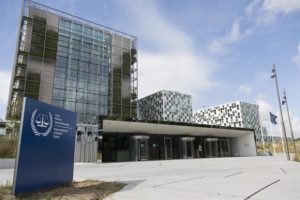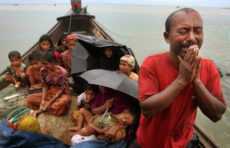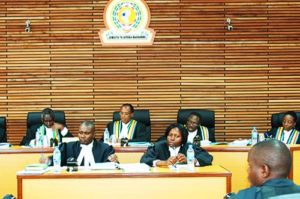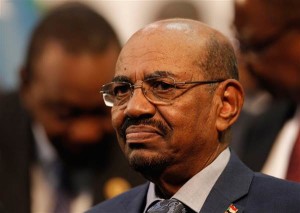 Today, 9 November 2017, Pre-Trial Chamber III of the International Criminal Court (ICC) issued a public redacted version of its decision authorising the ICC Prosecutor to open an investigation regarding crimes within the jurisdiction of the Court allegedly committed in Burundi or by nationals of Burundi outside Burundi since 26 April 2015 until 26 October 2017.
Today, 9 November 2017, Pre-Trial Chamber III of the International Criminal Court (ICC) issued a public redacted version of its decision authorising the ICC Prosecutor to open an investigation regarding crimes within the jurisdiction of the Court allegedly committed in Burundi or by nationals of Burundi outside Burundi since 26 April 2015 until 26 October 2017.
The Pre-Trial Chamber found that the Court has jurisdiction over crimes allegedly committed while Burundi was a State party to the ICC Rome Statute. Burundi was a State Party from the moment the Rome Statute entered into effect for Burundi (1 December 2004) until the end of the one-year interval since the notification of Burundi’s withdrawal (26 October 2017). The withdrawal became effective on 27 October 2017. Accordingly, the Court retains jurisdiction over any crime within its jurisdiction up to and including 26 October 2017, regardless of Burundi’s withdrawal.
As a consequence, the Court may exercise its jurisdiction even after the withdrawal became effective for Burundi as long as the investigation or prosecution relate to the crimes allegedly committed during the time Burundi was a State Party to the Rome Statute. Moreover, Burundi has a duty to cooperate with the Court for the purpose of this investigation since the investigation was authorised on 25 October 2017, prior to the date on which the withdrawal became effective for Burundi. Continue reading

 By
By  War. A term which traditionally conjures images of uniformed armies, guns, bombs, and other forms of conventional military warfare. Yet the 21st century has seen the rise of a new form of war, one divorced from these traditional methods and means: ‘cyber warfare’.
War. A term which traditionally conjures images of uniformed armies, guns, bombs, and other forms of conventional military warfare. Yet the 21st century has seen the rise of a new form of war, one divorced from these traditional methods and means: ‘cyber warfare’.![A photograph from September 2016 shows a malnourished boy laying on a bed outside his family's hut in Hodaida, Yemen [Abduljabbar Zeyad/Reuters]](../../wp-content/uploads/2017/10/Famine-Yemen-e1506979134944.jpg)
 Uproar about purported ‘abuses’ of diplomatic immunity has not been uncommon, most recently involving the wife of the sitting Head of State of Zimbabwe, Dr. Grace Mugabe.
Uproar about purported ‘abuses’ of diplomatic immunity has not been uncommon, most recently involving the wife of the sitting Head of State of Zimbabwe, Dr. Grace Mugabe.  While a lot of attention has been devoted to North Korea and referendum in Northern Iraq, comments must be made on one of the most tyrannous mass human rights violations of the last couple years. Recently, news on Myanmar and Rohingyas started to hit the headlines again. Graphic pictures and videos from the decades-long conflict zone Arakan, a.k.a Rakhine state, have started to spread in some news and social media sites. Although the State Peace and Development Council of Myanmar does not recognize the Rohingyas as one of the
While a lot of attention has been devoted to North Korea and referendum in Northern Iraq, comments must be made on one of the most tyrannous mass human rights violations of the last couple years. Recently, news on Myanmar and Rohingyas started to hit the headlines again. Graphic pictures and videos from the decades-long conflict zone Arakan, a.k.a Rakhine state, have started to spread in some news and social media sites. Although the State Peace and Development Council of Myanmar does not recognize the Rohingyas as one of the  Amnesty International has recently launched an advocacy platform, called Amnesty International’s Human Rights in International Justice Project.
Amnesty International has recently launched an advocacy platform, called Amnesty International’s Human Rights in International Justice Project.
 This post exposes a major obstacle facing one of the African regional economic community judiciaries: the
This post exposes a major obstacle facing one of the African regional economic community judiciaries: the 